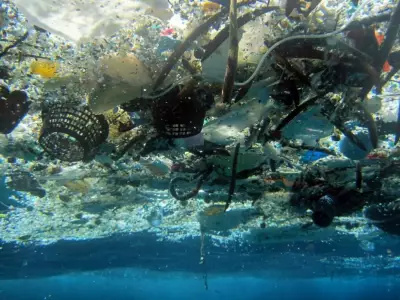
In a startling revelation that casts a shadow over Atlantic Canada's iconic seafood industry, researchers have documented the presence of microplastics in lobsters harvested from Nova Scotia's coastal waters. This concerning discovery raises urgent questions about plastic pollution's infiltration into our marine food chain.
The Unseen Threat in Atlantic Waters
Scientific investigators examining lobsters from the waters surrounding Nova Scotia made the unsettling finding: these crustaceans, prized for their culinary excellence, are accumulating microscopic plastic particles in their digestive systems. The research points to a widespread environmental issue that extends far beyond visible pollution.
From Ocean to Plate: The Contamination Pathway
The microplastics discovered range from synthetic fibers to fragmented plastic particles, all measuring less than five millimeters in size. These contaminants originate from various sources including:
- Breaking down of larger plastic debris in ocean currents
- Microfibers from synthetic clothing entering wastewater systems
- Cosmetic and personal care products containing microbeads
- Industrial plastic pellets and manufacturing byproducts
Implications for Marine Ecosystems and Human Consumption
While the immediate health implications for human consumers remain under investigation, the presence of microplastics in commercially harvested seafood represents a significant environmental red flag. Lobsters, as bottom-dwelling creatures, are particularly vulnerable to accumulating these particles from sediment and water.
A Call for Atlantic-Wide Environmental Action
This research underscores the pervasive nature of plastic pollution in our oceans, demonstrating that even remote coastal areas like Nova Scotia's fishing grounds are not immune. The findings highlight the critical need for:
- Enhanced wastewater treatment to capture microplastic particles
- Reduced single-use plastic consumption across Atlantic communities
- Further research into microplastic impacts on marine life and food safety
- Strengthened environmental protections for Canada's coastal ecosystems
The discovery serves as a sobering reminder that plastic pollution knows no boundaries, affecting even the most cherished elements of Canada's natural heritage and culinary tradition.





